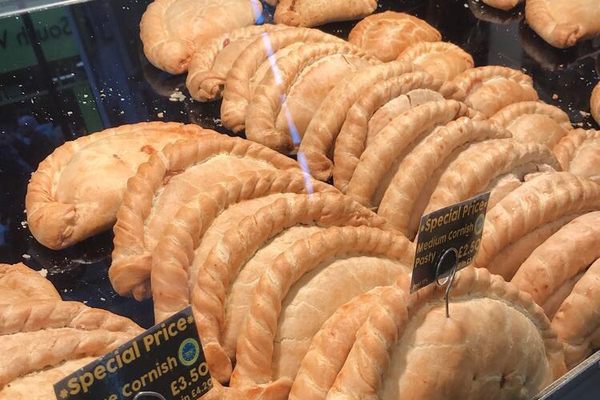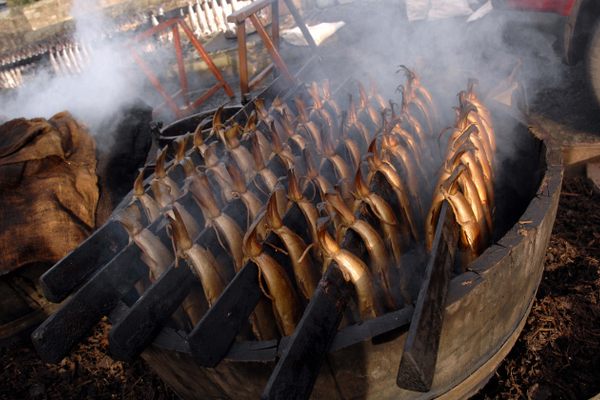Sweets
Hevva Cake
The simple sweets welcomed Cornish fishermen after they returned with their catch.
In the 17th and 18th centuries, Cornish pilchard fishermen employed “huers,” clifftop lookouts who watched for shoals of fish near the coast. When they spotted a shoal, the huer would cry out “hevva,” sending the men into their boats. It’s from this ritual that Cornwall’s hevva cake takes its name.
Many people would describe these pastries as the simplest cakes one could make. With no raising agent or egg, they are simply made from flour, lard (or more recently butter), currants, milk, salt, ginger, and cinnamon. But the cakes have a unique texture, which some describe as a cross between a cake and a shortbread, and a distinct appearance.
A traditional hevva cake should be marked by a criss-cross pattern, a reference to the nets used by the Cornish fishermen. Two stories exist as to who baked the cakes for the returning boats. One account claims that the huer would make them, while another says that the shouts of the huer would alert the fishermen’s wives to start baking.
The cake’s flavor is not dissimilar to the more familiar Welsh cakes (which, unlike hevva cakes, contain egg). In the past, hevva cakes would be made with lard, but the general consensus is that although modern ones made with butter are less authentic, they do taste better.
Written By
 Dr Alan P Newman
Dr Alan P Newman
Sources
- frugalfeeding.com/2014/12/17/cornish-hevva-cake/
- cornovia.wordpress.com/2015/08/23/cornish-hevva-cake-not-heavy-cake/
- books.google.com/books?id=t7SMcfNR8RcC&pg=PT136&dq=hevva+cake&hl=en&sa=X&ved=0ahUKEwi2iKeHv_vaAhWrxVkKHchjBYUQ6AEITDAG#v=onepage&q=hevva%20cake&f=false
- cornishculture.co.uk/portfolio/heavy-or-hevva-cake/
- books.google.com/books?id=78Bl4eybnEEC&pg=PT44&dq=hevva+shoal&hl=en&sa=X&ved=0ahUKEwj6wcbkv_vaAhWGwFkKHRZ0D1UQ6AEIJzAA#v=onepage&q=hevva%20shoal&f=false
- bunscuffle.co.uk/2016/03/hevva-cake/










